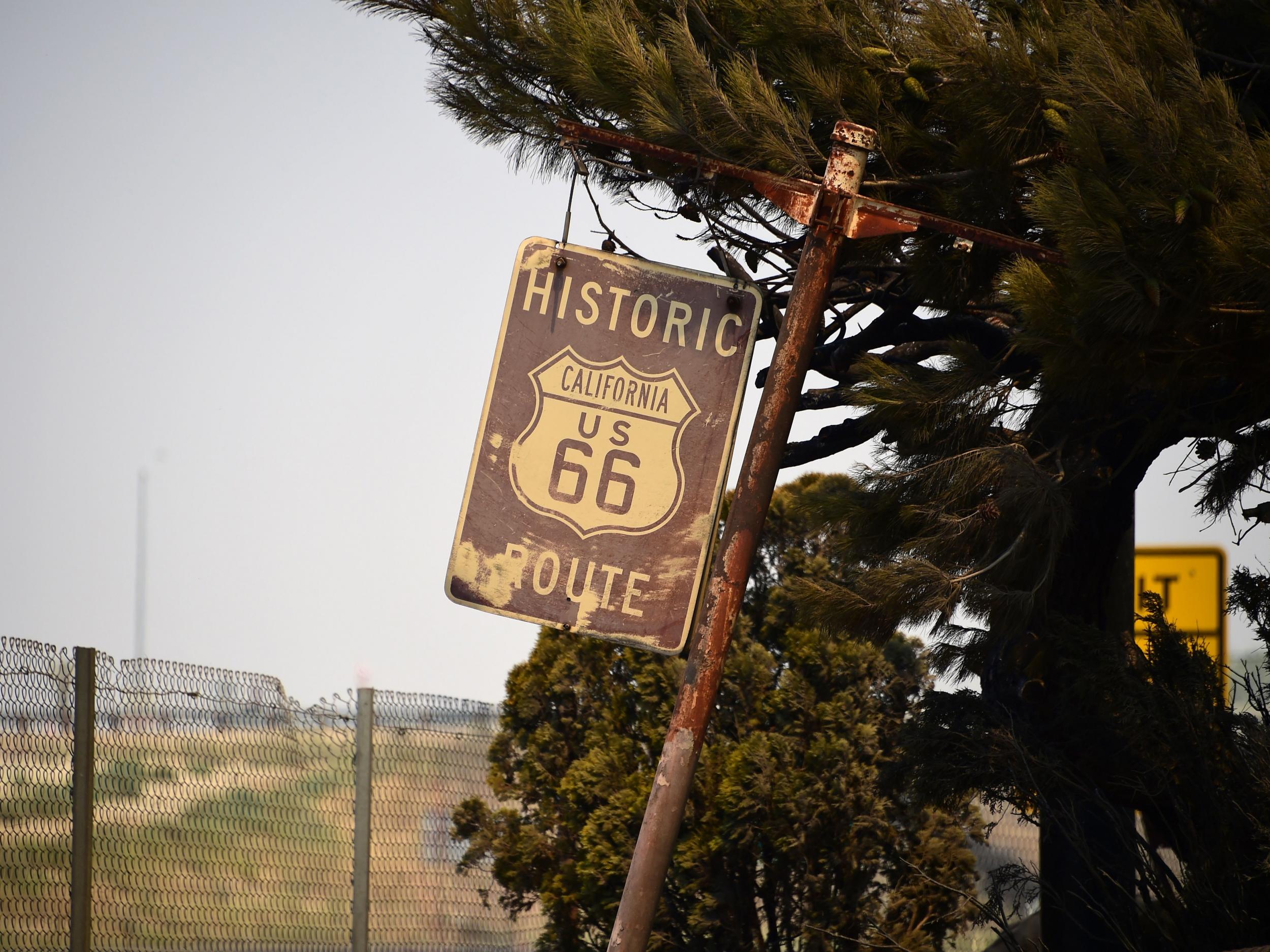Route 66 among 11 new endangered American historic places
Referred to as America’s “mother road", it joins places in Puerto Rico that were ravaged by hurricanes nearly a year ago and charming main streets across the country

Your support helps us to tell the story
From reproductive rights to climate change to Big Tech, The Independent is on the ground when the story is developing. Whether it's investigating the financials of Elon Musk's pro-Trump PAC or producing our latest documentary, 'The A Word', which shines a light on the American women fighting for reproductive rights, we know how important it is to parse out the facts from the messaging.
At such a critical moment in US history, we need reporters on the ground. Your donation allows us to keep sending journalists to speak to both sides of the story.
The Independent is trusted by Americans across the entire political spectrum. And unlike many other quality news outlets, we choose not to lock Americans out of our reporting and analysis with paywalls. We believe quality journalism should be available to everyone, paid for by those who can afford it.
Your support makes all the difference.Route 66 is among some of America’s most celebrated and revered historic places that are endangered by development and underfunding, a new listing shows.
Referred to as America’s “mother road", it joins places in Puerto Rico that were ravaged by hurricanes nearly a year ago and charming main streets across the country.
The new classifications come through the 31st annual Most Endangered Historic Places list, which was published by the National Trust for Historic Preservation.
The publication lists the 11 most endangered locations in the US and has included nearly 300 threatened sites since it was first compiled in 1988.
The locations can range from urban to local places, and face “a range of challenges and threats, from deferred maintenance to inappropriate development proposals to devastation wrought by natural disasters,” according to the report released by the National Trust for Historic Preservation.
“For over 30 years, our 11 Most Endangered Historic Places list has called attention to threatened one-of-a-kind treasures throughout the nation and galvanized Americans to help local communities save them,” Stephanie Meeks, the trust's president and chief executive, told USA Today.
The trust has historically been fairly effective, too: Fewer than five per cent of the sites on the list have been lost.
Here is a list of endangered sites, below.
Annapolis’ City Dock Area — A proposal to re-zone portions of the Colonial Annapolis Historic District, which has been protected by local laws and policies for over 45 years, has threatened to “damage the area’s quality of life and heritage tourism economy”, the list says. Annapolis is in the state of Maryland.
Ashley River Historic District — This South Carolina district is an iconic area in the state’s Lowcountry. The district has been threatened by an annexation proposal that could spur zoning changes, and potential development that could “irreparably damage the historic landscape”, according to the list.
Dr Susan LaFlesche Picot Memorial Hospital — This hospital is believed to be the first such facility constructed on a Native American reservation in the US without funding. The hospital, which is on the Omaha Indian Reservation in Nebraska, is “currently unoccupied and facing an uncertain future”.
Puerto Rico and US Virgin Island historic sites — The 2017 hurricanes that smashed Puerto Rico and the US Virgin Islands led to a massive loss of life, but also major damage to historic and cultural landmarks in the US territories. The trust notes that another hurricane season has arrived, and says that these sites “face significant challenges due to limited materials, financing, and preservation expertise”.
Isaiah T Montgomery House — This house was one of the earliest all-black municipalities, and was established by a former slave in the Mississippi Delta after the US Civil War. The Mound Bayou, Mississippi house is “in urgent need of stabilisation and rehabilitation”.
Larimer Square — This Denver commercial block doubles as the city’s first historic district, and has previously been an example for old neighbourhood revitalization and preservation. But the trust says that the area is threatened by “an inappropriate development proposal” that would demolish several of the buildings.
Mary and Eliza Freeman Houses — These houses in Bridgeport, Connecticut are considered to be the oldest houses built by African Americans in the state, and “help to tell the unique story of the free black community in the North prior to the Civil War”. They are vacant and deteriorating, according to the trust.
Mount Vernon and Piscataway National Park — A proposed gas compressor station that would sit right next to this national park in Mount Vernon, Virginia and Accokeek, Maryland, could damage the “negatively impact the historic view from Mount Vernon and the natural beauty of Piscataway National Park”.
Route 66 — The trust lists sites in Illinois, Kansas, Missouri, Texas, Oklahoma, New Mexico, Arizona, and California among those that are threatened if the US Senate doesn’t take steps to pass an effort to designate the entire roadway as a National Historic Trail. Route 66 is seen as a symbol of America’s “romance with the open road”.
Ship on the Desert — This early Modernist house in Salt Flat, Texas sits within Guadalupe Mountains National Park, and currently suffers from deferred maintenance, and is not open to the public at the moment.
Walkout Schools of Los Angeles — Five historic campuses were central to the 1968 East LA Chicano Student Walkouts, which helped spar the national Chicano Civil Rights Movement. The trust says they are “tangible representations of the power of student activism” and that they are threatened with calls for demolition by the school district.
Join our commenting forum
Join thought-provoking conversations, follow other Independent readers and see their replies
Comments